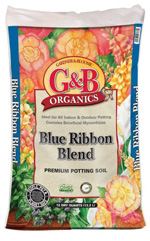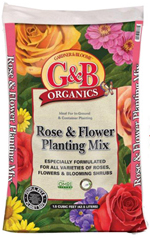|

 An exceptional potting soil for indoor and outdoor containers. 
 Especially formulated for the needs of palm, cactus, citrus & succulents.  Helps produce more abundant, better tasting and more nutritious vegetables.  Ideal for a variety of in-ground and container planting. |
 |
"I go to nature to be soothed and healed, and to have my senses put in order." |
 |
Plant a Tree for Father's DayA great way to make this Father's Day a memorable one is to plant a tree for dad. In addition to providing a valuable asset to your yard, a tree will grow with your family and create a link between your family and your home. Selecting the proper tree for your yard will require some forethought. The biggest thing to consider is how big the tree will get. Whichever tree you are considering, you should imagine it at its largest potential. You don't want to plant a tree that will get huge right next to your house, driveway, or where it will shade your entire garden all day. Hazards can be below ground too. The roots of a tree will grow as large as its canopy, and can interfere with unseen water, septic, and sewer lines. Roots can also uplift sidewalks and penetrate foundations. It's always a good idea to have your water and gas lines "staked" beforehand to ensure they won't become a problem later. The second question to ask yourself is what you your dad would want out of a tree. Would dad like a tree that is occasionally covered in flowers? Would he rather have a fruiting tree? Would he like a large canopy to block hot summer sun, or should it enhance the privacy of your yard by blocking the neighbors' view? Other considerations, such as soil type, fertilization, and how close it will be to power lines should factor in as well. It is best to choose a tree that will fit in its surroundings without having to be trimmed. Planting the tree is fairly simple, but doing it correctly is essential to making sure the tree will survive.
The most common mistake people make when planting trees is to plant them too deep. Make sure the root flare, where the trunk begins to spread out into roots, is above the height of the soil around it. A tree planted too deep will struggle to survive and will have very limited growth. If you're not sure how to identify the root flare, ask someone in the garden center. |

|
1. Continue to plant melons. |

|
Few plants can match the tropical appeal and intense color of canna lilies. Their regal beauty can add a spectacular presence to any garden. Native to South America and the West Indies, these blooming beauties offer color from May until late fall, with a color range that includes all your favorite reds, oranges, yellows, pinks, corals and salmon. New hybridizing efforts have also produced a number of varieties that also feature attractive striped, variegated, bronze and burgundy foliage. Canna lilies grow from 2-6' tall, depending on the variety, and are amazingly trouble-free when it comes to insects and disease. They are incredibly versatile and can be successfully mixed in borders, massed in garden beds by themselves or tucked between other small-to-medium shrubs. They also tolerate wet soils better than most plants. For those of you with limited space, they make a great addition to a container garden. Canna lilies do go dormant each season and simply need to be pruned back to the ground once the foliage starts to fade. They do best in moist soils and show their colors more intensely when fed every two months during the growing season. Whether you choose them for their vibrant blooms or bold patterned leaves, make room for some easy-to-please cannas in your garden this year. |

|
Whether or not water restrictions are in effect, it's a good idea to think about how you can lower your water usage at home. Luckily, you won't have to consider keeping your showers to once a week, because most water usage, and potential for reduction, is outside your home. Here are some ideas to lower your water consumption without surrendering your yard to the desert. • Adjust your watering schedule. • Decrease the footprint of your lawn. • Dethatch your lawn. • Raise your mower blades. • Inspect your irrigation system. • Trim bushes back from sprinklers. • Add a layer of mulch to your shrubs and trees. • Use plants that need less water. Saving water is easy, and it has the potential to save you some cash and make your yard much more sustainable. If everybody reduced their usage a bit, the savings could be huge. |
 |
|
Do your last thinning on deciduous fruit trees after June drop, nature's way of getting rid of an overload of fruit. It may occur any time between early May and July but is most likely to happen in June. One day you visit your deciduous fruit tree and find a circle of immature fruit lying on the ground under the branches. You may worry if you are new to fruit trees, but don't panic! It's a natural part of the cycle. These trees often set more than double the amount of fruit they could possibly ripen properly, so they simply drop off part of it. If you thinned out fruit on your trees earlier, you enabled the remaining fruit to grow larger and thus will have less fruit dropping now. Nevertheless, you may need to remove even more fruit than naturally drops in order to space your crop evenly down the branches. Inspect other deciduous fruit trees that are less subject to June drop and thin out their fruits also. Clean up any fallen fruit under the tree before it has a chance to rot and spread disease. If it's healthy, chop it and add it to your compost pile (cover it with earth to keep away flies and rodents). Also water your deciduous fruit trees deeply in June and July. |
 |
|
What You'll Need:
Step by Step:
|
 |
Written content © Garden Partners LLC, or respective authors. All Rights Reserved. Privacy Policy. All written content contained in this site is protected by United States copyright law and may not be reproduced, distributed, transmitted, displayed, published, or broadcast without prior written permission of Garden Partners, LLC. You may not alter or remove any trademark, copyright or other notice from copies of the content. |



